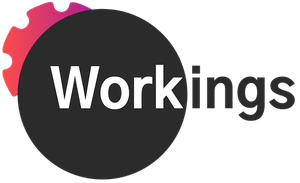But one response stuck with me, not because it was unique but because it encapsulated a sentiment expressed by so many in recent months: a deep-seated anxiety about the prospect of finding a good job amid all the current turmoil in the tech sector. Anxiety that I suspect tips into despair, all alone at one’s desk or perhaps in the wee hours of the night. This particular response wrapped with, “I have to confess that my overall take on everything going on right now would be something pretty cynical, like ‘Capitalism sucks.’”
I get it. In recent months in the tech sector:
- Scores of companies, even wildly profitable ones, have responded to post-pandemic revenue slowdowns by shedding jobs, affecting both FTEs and contractors.
- Perhaps related to the layoffs, but more likely driven by a broader preoccupation with cost cutting (including a focus on offshoring, automation, and the gig economy), we’re seeing more roles than usual with lower rates and shorter durations.
- In addition, competition among job seekers for the shrinking number of high-quality remote roles has increased. Last month, for example, LinkedIn reported that more than half (52.8%) of the total number of applications submitted through its platform went to the (now only) 13% of its job listings that are for wholly remote positions.
On top of those developments, different generations have their own stressors:
For GenZ and a lot of younger Millennials, especially those who have only worked in the tech industry so far, this is the first real downturn of their careers. They’re shocked and scared. I know that mocking the naïveté of these younger generations is for some of my contemporaries (I’m 53) almost as popular a pastime as pickleball—but I think compassion, and maybe even some resilience mentoring (Is that a thing? Let’s make it a thing!), is in order. The boom times of tech were heady days indeed, and it’s incredibly disorienting to go from being courted and pampered—and told that a team is a “family” (Gah! Make it stop!)—to being abruptly let go.
Meanwhile, older Millennials, GenXers, and younger Boomers—while no strangers to downturns and layoffs—are scared as well, worrying, too often with good reason, that ageism might make their job searches even harder this time around. Again, I think compassion, with good advice, is in order. There is much for older job searchers to be optimistic about:
- In tech, one of the keys to unlocking new growth is accessibility—and improvements on this front depend in large part on the insights of older people;
- Thinking more broadly, unemployment overall is extremely low (the lowest in over 50 years!), so casting a wider net if necessary, into new companies and new industries, should prove productive;
- And—in terms of having the basic skills required to navigate a modern workplace—many older workers today are totally tech fluent in a way that older workers, decades ago, simply were not.
Recapping the turmoil of the last six months and the impact across different generations is all to say—both to the individual who wrote to me and to everyone currently eyeing a ‘Capitalism Sucks’ t-shirt—that I see what you’re seeing. Despite being a card-carrying capitalist myself (yep, I really do laminate everything*), I get it. In fact, small- and medium-sized companies—with our limited resources and ever-present cash flow concerns—have a lot more in common with individuals than they do with large companies, and believe me: both my business and my family (including my own laid-off, GenX husband) are feeling the pain caused by the tech industry’s violent retrenching.
BUT…
…I don’t think capitalism sucks. I think there’s a lot that’s wrong with the way capitalism has been shaped in the last forty years—exacerbating income inequality, exposing growing numbers of people to healthcare-related bankruptcies, and routinely prioritizing short-term shareholder gains over employee wellbeing and climate concerns. Those trends could—and should in my view—be reversed, via, for example, more progressive taxation policies and the introduction of universal healthcare. Further, we could introduce regulations or incentives that would force a focus, even among large, public companies, on the so-called triple bottom line—financial, social, and environmental. (While some private companies choose to pursue a mix of goals, many public companies, to be fair, face activist shareholders if they don’t ruthlessly prioritize profits.)
At the rate that globalization and automation are displacing people from their jobs, we should probably also introduce a universal basic income (UBI) and, as I’ve said before, an entirely new approach to education, including adult education that never ends.
But please: let’s not turn on capitalism as a whole! With the right social safety nets in place, and a more equitable set of rules, capitalism—like no other economic system—can foster unequivocal pluses like improved standards of living, innovation, competition, and choice…right?
Or no? Fight me, please. I care about these issues, and I welcome having my views challenged.
Thanks,
Kate
P.S. Let me use this postscript to anticipate a question:
OMG why did you write this? It’s so freakin’ long and dense! I thought you were joking when you said you’d need to touch on post-70s capitalism, globalization, automation, and the gig economy in order to address one reader’s email!
My answer: I wrote all this, for better or for worse, because a lot of what is so hard on so many people today was seeded not in recent years but over four-plus decades. Truly, I don’t aim to get political in my posts, but also: I don’t know how to think or talk about this stuff without considering the broader environment in which we all operate. I’m also hoping, content-obsessed True Believer that I am, that outlining what I perceive as critical context might make for richer exchanges as we all—candidates, consultants, clients, and business builders—try to navigate these tricky times.
*But yeah: it’s a lot. Next time I’m going waaaaaay lighter: I’m going to write about why exactly I laminate stuff in order to relax. See you then, I hope?
Photo by Road Trip with Raj on Unsplash


 Hello from Steyer!
Hello from Steyer!